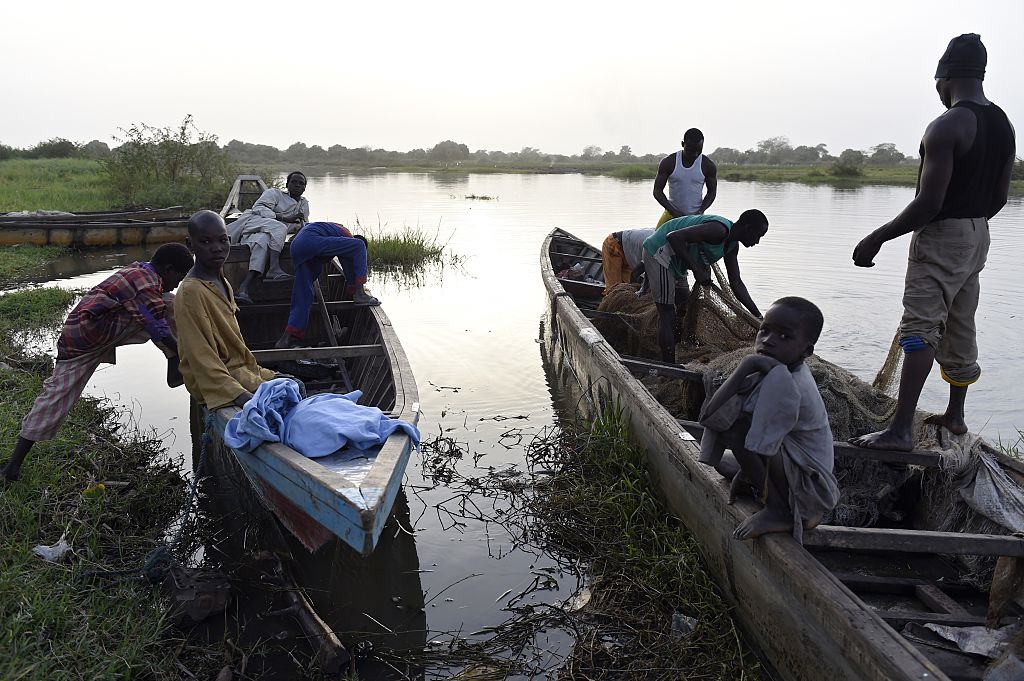ADF STAFF
The Lake Chad region boasts interconnected communities that share ethnic and economic ties across four countries. They have traded and intermingled with one another for centuries. But the arrival of Boko Haram has damaged these ties and destroyed local economies.
Since 2013, the terrorist group has infiltrated communities across the region where Cameroon, Chad, Niger and Nigeria meet. Today, Boko Haram dominates the cross-border economy, generating millions of dollars through operating public markets, and an array of crimes such as extortion, kidnapping and armed robbery.
“The group preys on local communities for its resilience, survival and capacity to continue wreaking havoc,” writes Malik Samuel, author of a recent report by the Institute for Security Studies (ISS) that examines the ways Boko Haram and its affiliates exploit the Lake Chad region to finance their operations.
The ISS report uses “Boko Haram” as an umbrella term for the three splinter groups derived from the original organization. Those splinter groups are Ansarul Muslimina Fi Biladis-Sudan (Ansaru), Islamic State West Africa Province (ISWAP) and Jama’atu Ahlis-Sunna Lidda’Awati Wal-Jihad (JAS).
Up to 90% of people in the Lake Chad basin rely on farming, livestock and fishing for survival. After nearly a decade under the thumb of Boko Haram, about one-third of the 30 million residents now need humanitarian aid and 3.2 million have fled their homes. More than 3 million are food insecure.
Government actions intended to disrupt terrorist groups, such as banning fuel transport in jerry cans or blocking the export of fish, have damaged the local economy. That, in turn, has engendered mistrust in some government officials while providing terrorist groups black market revenue and making them important sources of income in the region.
“The situation, and measures to address it, have perpetuated insecurity and compounded pre-existing governance and socioeconomic difficulties,” Samuel writes.
In some cases, Boko Haram benefits from corrupt members of the local security forces, who have provided fighters with weapons, purchased stolen cattle and acted as intermediaries for the purchase of vehicles used in attacks.
“The collusion of individuals within the security forces is perhaps the most significant enabler for a resilient Boko Haram, since these entities are directly responsible for defeating the group and maintaining security in the region,” Samuel writes.
ISS developed its report through a series of interviews with former terrorists, community members and others across the region.
ISWAP raises an estimated $43 million per year by extorting money from approximately 10,000 fishers for permission to work on Lake Chad. It also receives about $2.2 million per year in levies on dried and smoked fish packaged and shipped from the lake. ISWAP raises more revenue by renting some of its 350 boats to fishing crews and charging people who fish with traps along the shore.
The terrorists claim the payments are part of “zakat,” which is a tax authorized under Islamic law, often for charitable purposes. In reality, the money they take from farmers and pastoralists flows into the terrorists’ pockets.
In the end, disrupting Boko Haram’s hold on the Lake Chad region will require more than military action, Samuel said. He recommends:
- Governments must root out corrupt members of the security forces whose collusion supports terrorism directly or indirectly.
- Regional organizations should strengthen their capacity to stop money laundering as a way to break up Boko Haram’s financial network.
- Cross-border groups such as the Multinational Joint Task Force should work to deny terrorist groups access to Lake Chad, thereby undercutting ISWAP’s ability to extort fees from local fishers.
In their effort to deny terrorists an economic safe haven in the Lake Chad basin, governments must reconsider the kind of heavy-handed tactics that might harm the livelihoods of the region’s law-abiding residents, Samuel notes.
“Measures to disrupt this economy and weaken Boko Haram have often proved counterproductive,” Samuel writes. “Ultimately, this trend contributes to the resilience and sustenance of Boko Haram.”

